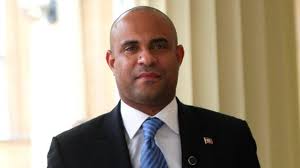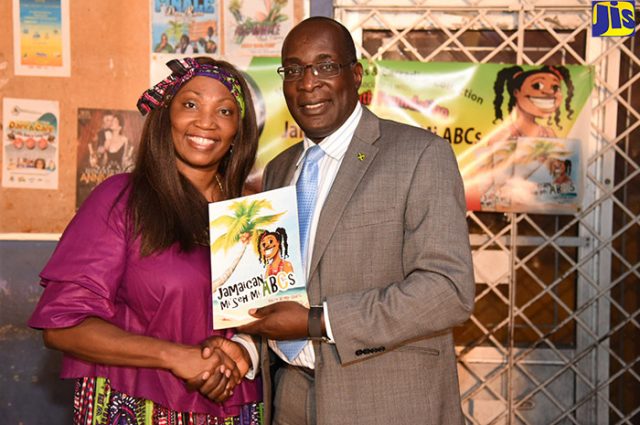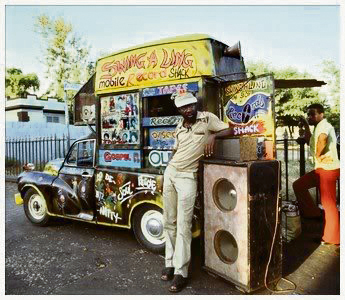Prime minister says Haiti to hold long overdue elections by early next year
By Trenton Daniel
THE ASSOCIATED PRESS
NEW YORK _ Haitian Prime Minister Laurent Lamothe said Tuesday that his country will hold long-overdue elections no later than early next year if several opposition lawmakers don’t stand in the way of the vote before their mandates expire in January.
In an interview with The Associated Press, Lamothe said a group of six senators who have been holding Haiti “hostage” won’t be able to do so anymore once their terms end. Still, Lamothe said, he hopes the officials will approve an electoral law before then, a move that could pave the way to organize the vote that is three years late.
Lamothe has promised before that the legislative and local elections will happen before year’s end, but now the stakes are higher as the government faces mounting pressure from the United States and United Nations to organize the vote before the terms of 10 senators expire in mid-January and Parliament is dissolved. President Michel Martelly will then rule by decree.
“From Jan. 12 on, they will not have the (green) light to block the process,” Lamothe said while in New York for the United Nations General Assembly. “The president will take (responsibility) and organize the elections as soon as he can, as soon as possible.”
If the vote isn’t held before year’s end, it will happen in the first three months of next year, Lamothe said.
The elections seek to fill two thirds of the 30-member Senate, the entire 99-member Chamber of Deputies and dozens of local posts. Political infighting and foot dragging have led to the delay, which has been met with a mix of frustration and indifference.
The senators deny they’re holding up the elections and are instead defending the Haitian Constitution.
The run-up to the vote is almost certain to prove turbulent.
In recent weeks, supporters of two-time president Jean-Bertrand Aristide have organized menacing protests outside his compound in the capital as he faces a revived criminal inquiry that originates from the aftermath of his second ouster, in 2004.
Aristide, a former priest who remains both popular and polarizing, is barred from running for a third presidential term under the constitution. But leaders of his political party, Lavalas Family, have said they plan to participate.
The judge’s report focuses on corruption, money laundering and drug trafficking charges brought against Aristide, Lamothe said, citing information he has received from the judge and the news.
Aristide’s legal team said he is innocent and is being persecuted as part of an effort to discredit his political party from running in the upcoming election. Lamothe denied this on Tuesday.
“We have absolutely no intention of persecuting Aristide politically or anything of the sort,” Lamothe said in a hotel restaurant on Manhattan’s Upper East Side. “What we want is stability. We want peace. And we want the country to move forward. And of course we want the rule of law to prevail.”
Lamothe declined to say if the case would prove explosive if Aristide was served an arrest warrant, which was issued because he had ignored the investigating judge’s summons to answer questions. A house arrest was then imposed on Aristide; his lawyer has said such restrictions don’t exist in Haiti.
On the face of it, the Aristide case seems at odds with a spirit of reconciliation that Martelly had promoted shortly after winning a contested election that brought him to power in 2011. After he was inaugurated, Martelly met with former heads of state, including Aristide and ex-dictator Jean-Claude “Baby Doc” Duvalier, who also faces criminal charges.
The aim of such meetings was to show that Martelly was above the revenge-focused politics that has defined Haiti‘s past.
“That is still the goal of the government, to basically hold a united country to tackle problems in a united fashion,” Lamothe said. “But in this particular case you have an independent judge doing an independent inquiry into dealings of (Aristide’s) past.”
Aristide returned to Haiti in 2011, a year after the capital was struck by a massive earthquake. The disaster destroyed hundreds of buildings, including the National Palace, a Beaux Arts structure that served as a symbol of the country’s devastation. The quake displaced more than a million people, a number that officials say has since dropped to 60,000.
The National Palace wasn’t demolished until 2012 and the government has yet to announce plans to rebuild another.
“The president wanted every single (displaced) person to be relocated before even thinking of the palace, before even thinking about reconstructing the palace,” Lamothe said. The new residence “will be a palace that is much more modest and has a sense of humility, more than a sense of glamour and glitz.”
Photo from www.bet.com





